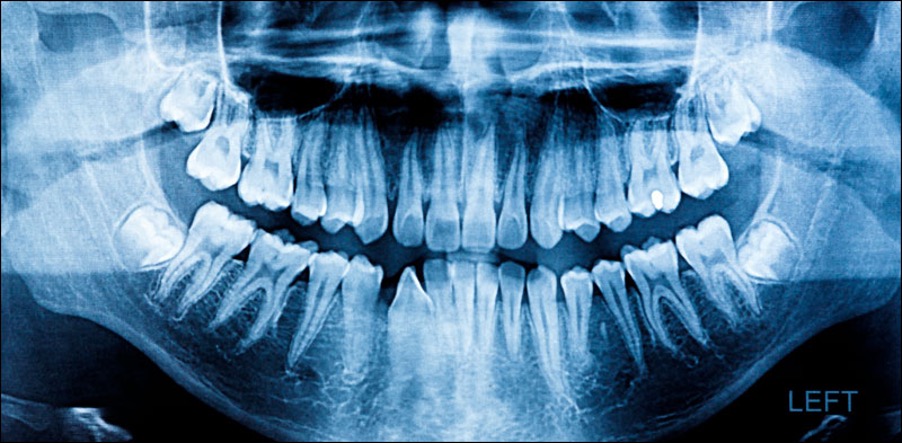January 2022 is a good time to have a Comprehensive Dental Examination. The Comprehensive exam is often overlooked among patients and some dentists. Some associate it with the expense and the time it takes or fear of finding a “major” problem.
In this column, we will discuss the comprehensive exam and why it is important.
Generally, the comprehensive dental exam or consultation is the most important dental visit. During this exam the dentist sees the immediate problem, and also the big picture. The comprehensive exam is the big picture, where focus is on the following: patient’s chief complaint, contributing factors, dental history, all risk factors, symptoms, oral hygiene, medicine usage, proper x-rays and medical history. In essence, the dentist cannot treat what he does not know. The comprehensive exam considers all viable information to make an informed decision. This information is shared with the patient and together a treatment plan is presented for execution.
To properly and reliably support the diagnosis the dentist should have proper digital x-rays. Today’s best dental exam should not be focused on a single tooth, but should rather be more detailed. This plan, serves the patient’s best interest. Remember, a good plan saves money and preserves your dental health.
As a specialist, I often see advanced and debilitating diseases. Patients are often anxious, frustrated and uninspired about their dental condition. It is important that in correcting their ailments, dentists get it right the first time.
Here is what to expect in a comprehensive dental examination or consultation:
- A thorough medical history inclusive of medications taken with ailments and family history. This is important because some medications affect your oral health.
- A thorough head, neck and facial examination to determine facial swelling, asymmetry, TMJ clicking, pain and bruises or swelling associated with possible physical abuse.
- A gum (periodontal) examination including probing of pocket depths to determine the amount of bone support, gum recession, gum thickness, bleeding, swelling and tooth mobility.
- A complete intra-oral examination that looks at the soft tissues for ulcerations, swelling, discolorations and any tissue changes.
- Examination of the existing teeth to determine tooth decay, broken fillings, silver fillings, worn fillings, leaky or broken crowns, teeth abrasion at gum line, etc.
- Full mouth and specific radiographs. This may involve a panoramic, full mouth series, bitewings or CT Scan. In emergency cases a single x-ray may be taken.
- Check the bite (how the teeth come together) relationship, missing teeth, teeth alignment, mobility and teeth trauma.
- C T Scan- a 3D image is now the standard of care to get further information for implants, tumors, bone defects, impactions, major infections, orthodontics, fractures and foreign bodies.
- Study models or digital impressions with a soft tissue scan for treatment planning, fast braces and case presentation.
- Take digital pictures of teeth, gums and soft tissues- great to educate and show before and after results.
You would see from this list the importance of an accurate diagnosis and proper treatment plan. A good plan is the key to your success. It sets practical goals on the way to a beautiful and healthy smile. Also, a proper dental plan saves money in the long run and preserves your dental health.
Overall, the experience should be a pleasant one. When you leave the office, you should be well informed and presented with alternative choices. If not fully comfortable, or unclear then a second opinion may be your preference. Remember, the comprehensive exam creates a partnership between patient and dentist for the best outcome.
Dr. Kendal V. O. Major is Founder and CEO of Center for Specialized Dentistry operating in Nassau and Freeport. He is the first Bahamian Specialist in Gum Diseases and Dental Implants since 1989. His practice is located at 89 Collins Avenue, Nassau at (242)325-5165 or [email protected].

Panoramic x-ray. See developing 3rd molars in all four quadrants

Probing is necessary to determine extent of pockets and bone loss

Bitewing x-ray showing severe decay (dark area in tooth) Clear areas are fillings





